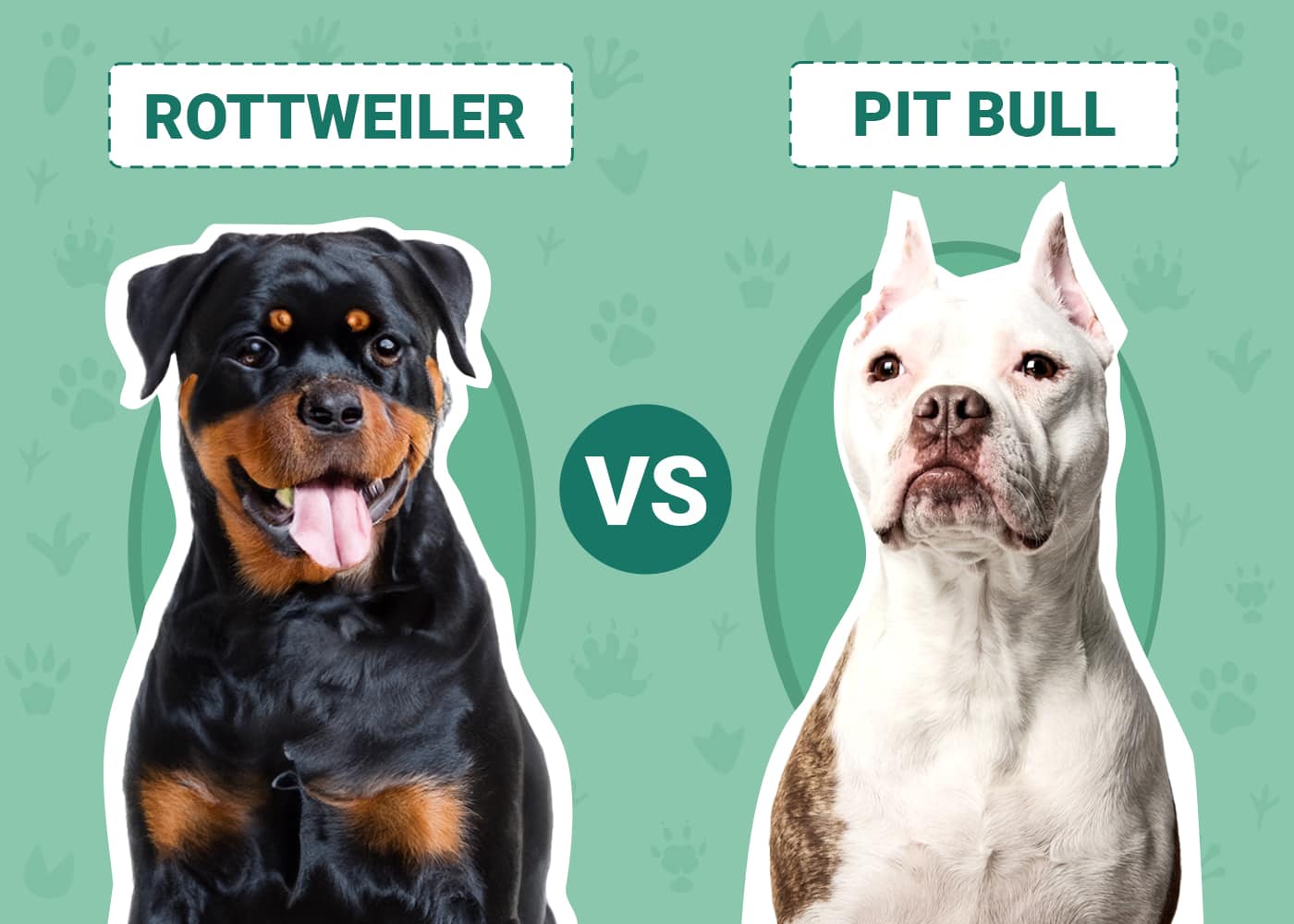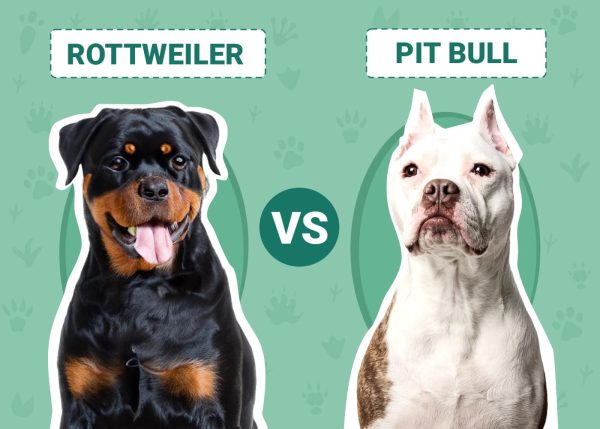Powerful, no-nonsense guard dogs, Rottweilers are the ultimate multi-purpose dogs. Smart, loyal, and dedicated, these darkly handsome canines have a long history of working alongside humans in many different roles. Still used today by police and military groups worldwide, Rottweilers also often find themselves in the role of family pets.
Originally created for the cruel pastimes of bull baiting and dogfighting, Pit Bulls later transitioned seamlessly into gentler roles. Due to their complete devotion to their owners, Pit Bulls became trusted family dogs, a role that they still play today, despite an unfortunate reputation in many circles.
Both of these breeds have much to offer but what are the differences and similarities between the two, and how can you decide which is the one for you? Keep reading to learn more about these two popular breeds and how to pick the dog that best suits your lifestyle.
Visual Differences
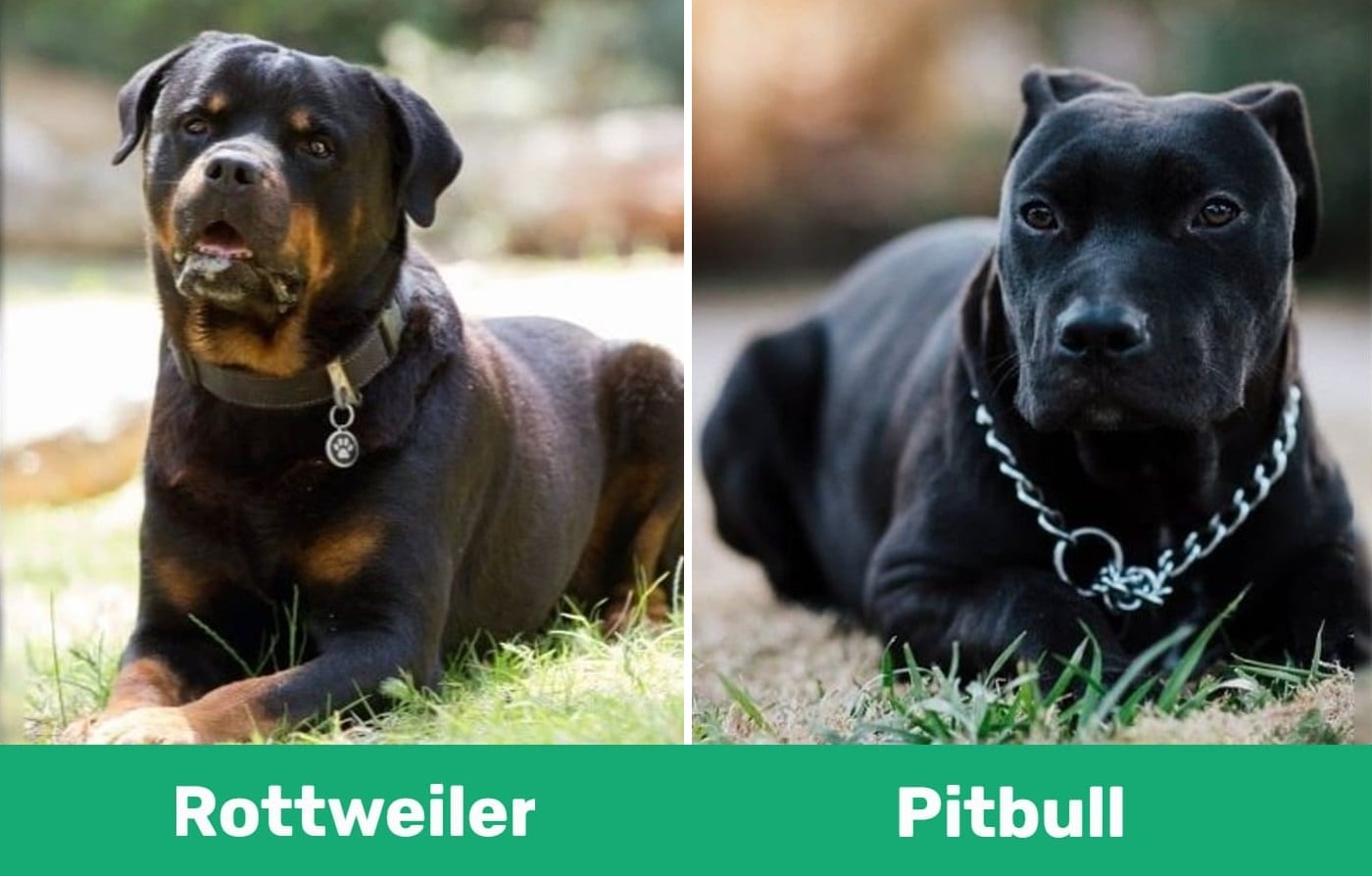
At a Glance
- Average height (adult): 22–27 inches
- Average weight (adult): 80–135 pounds
- Lifespan: 9–10 years
- Exercise: 2 hours a day
- Grooming needs: Moderate
- Family-friendly: Often, with socialization
- Other pet-friendly: Often, with socialization
- Trainability: Intelligent, loyal, sometimes stubborn
- Average height (adult): 17–21 inches
- Average weight (adult): 30–60 pounds
- Lifespan: 12–14 years
- Exercise: 1–1.5 hours a day
- Grooming needs: Low
- Family-friendly: Yes, with socialization
- Other pet-friendly: Sometimes, with socialization
- Trainability: Intelligent, eager to please, outgoing
Rottweiler Overview
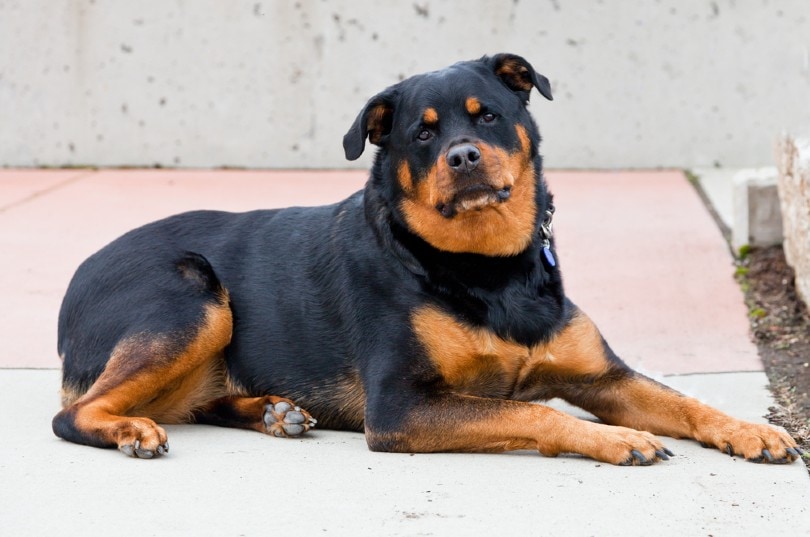
Personality/Character
Strong, loyal, and brave, Rottweilers are natural guard dogs that regard strangers with suspicion but shower their families with affection. Their large size and sometimes dominant personalities require a firm hand and an experienced owner. With proper training and socialization, Rottweilers can make cuddly and even goofy family pets. They’re dedicated working dogs and loving companions rolled into one sturdy package.
Training
Developed as working dogs, Rottweilers are athletic, intelligent, and highly trainable. They’re also powerful and sometimes stubborn. Rottweilers need consistent, firm training and socialization right from puppyhood. They’re very much people-centered dogs that need to be included in daily family life as much as possible. Rottweilers do best when they have some sort of regular job to do and receive daily mental stimulation.
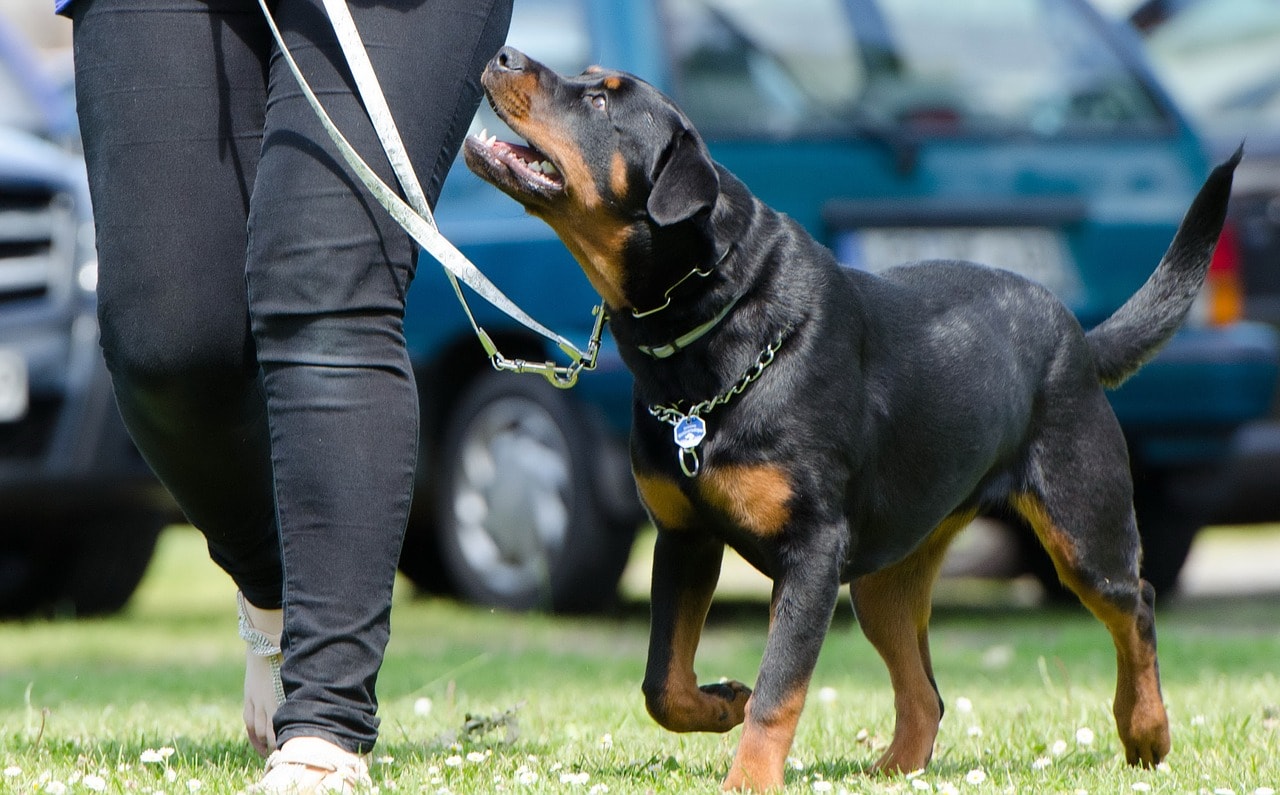
Exercise
Rottweilers are energetic dogs that need about 2 hours of exercise a day. They prefer more structured activities in the company of humans rather than just entertaining themselves in the backyard. Jogging, hiking, and interactive playtime are all good options. Rottweilers also enjoy various canine sports like tracking, carting, and obedience competitions. Activities that enable them to exercise both mind and body are ideal for this intelligent breed.
Health & Care
Rottweilers can suffer from several inherited health conditions. The best way to avoid these is to choose a responsible breeder who performs all the recommended genetic screenings on their dogs. Here are the most common health problems seen in Rottweilers:
- Hip and elbow dysplasia
- Cancer
- Aortic stenosis
- Bloat
- Eye problems, such as entropion
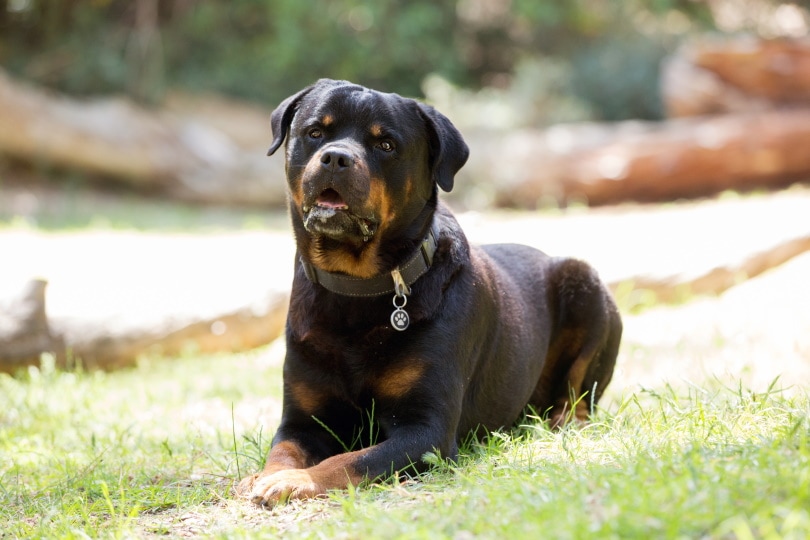
Breeding
Before breeding, Rottweilers should have their hips, elbows, eyes, and heart checked and certified. Males and females shouldn’t be bred before they’re 18 months old. Rottweilers generally have large litters, six to 12 pups at a time on average.
Rottweilers don’t usually have issues with pregnancy and birth like some other breeds. However, caring for a pregnant dog and newborn puppies is both time-consuming and expensive, and there’s always the possibility of complications.
Suitable For:
Rottweilers are best suited for more experienced dog owners who have plenty of time to devote to their dogs. Some breeds can be their best selves with minimal intervention from humans, but Rottweilers aren’t one of them. They need both simple attention and targeted training and socialization to ensure that they develop into well-mannered pets.
Pit Bull Overview
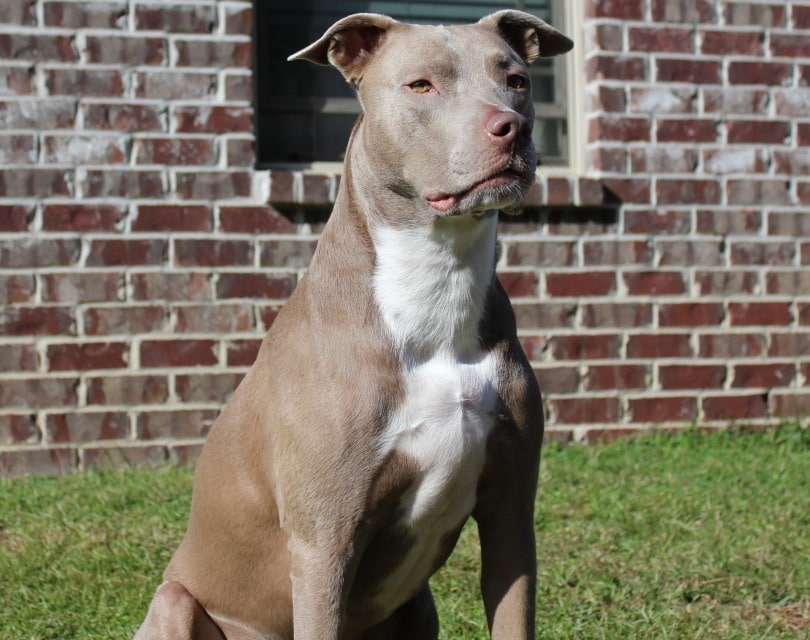
Personality/Character
Despite their heritage as bloodsport dogs and their often bad reputations, Pit Bulls are true people-lovers at heart. A well-socialized, trained Pit Bull makes a wonderful family dog. They are gentle with children and eager to take part in all family activities, however boring. They love life and spreading joy and tail wags to all they meet.
Energetic and prone to being stubborn and bossy, Pit Bulls need structure and training from an early age to ensure that they grow up to become calm, adaptable pets. Pit Bulls aren’t always the best with other animals, however, especially other dogs of the same sex. Their intense nature and strength can lead to issues if Pit Bulls aren’t afforded the affection, socialization, and training that they need.
Exercise
Active and playful, Pit Bulls need at least an hour of exercise every day. While they’ll certainly appreciate a good romp in the backyard, Pit Bulls would much rather have a human join in on their play. Long walks and jogs are another good way to exercise a Pittie and bond with them at the same time.
Pit Bulls don’t tolerate temperature extremes well, so prepare accordingly if you must exercise your dog in very hot or cold weather. Since even well-socialized Pit Bulls can be untrustworthy with other dogs, always keep your pet on a leash.
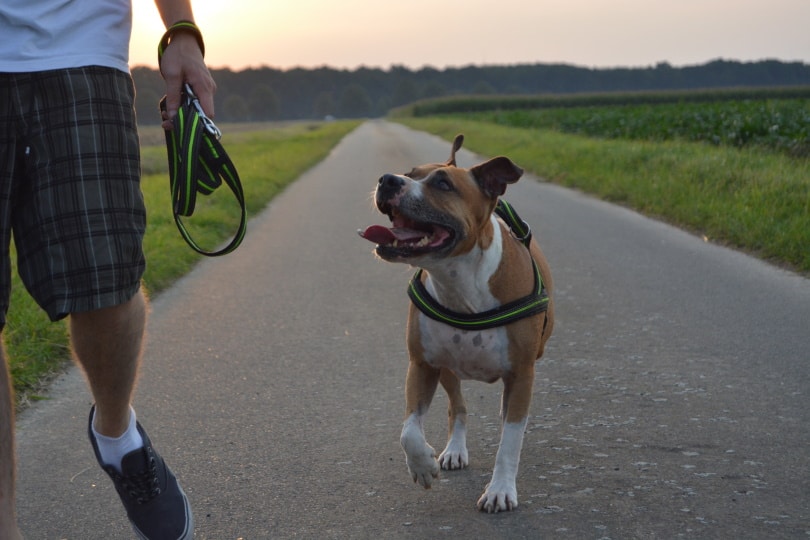
Training
Pit Bulls are generally quite smart, eager to please, and take to training well. Since they are strong and sometimes stubborn, training and socialization should start early, when the Pit Bull is still young and easier to manage. Consistent guidance as the dog grows will help them understand and maintain good behavior.
Pit Bulls can be excellent pets with children, given proper supervision. The breed was at one time nicknamed the “nanny dog” because of how much they adored kids. All dogs should be supervised when interacting with children, however.
Pit Bulls are intensely devoted to humans, to the point that they can develop serious behavior problems if they don’t get the attention they need. Many of the unfortunate reputations of some Pit Bulls are the result of humans neglecting their dogs or deliberately encouraging aggression and antisocial behavior.
Health & Care
Pit Bulls are generally healthy dogs but are susceptible to several inherited health conditions. Care must be taken when choosing a Pit Bull breeder to make certain they’re dedicated to producing healthy dogs rather than just making money. Here are a few of the health conditions that you may see in a Pit Bull:
- Hip dysplasia
- Luxating patella
- Degenerative myelopathy
- Allergies
- Thyroid disease
- Heart conditions
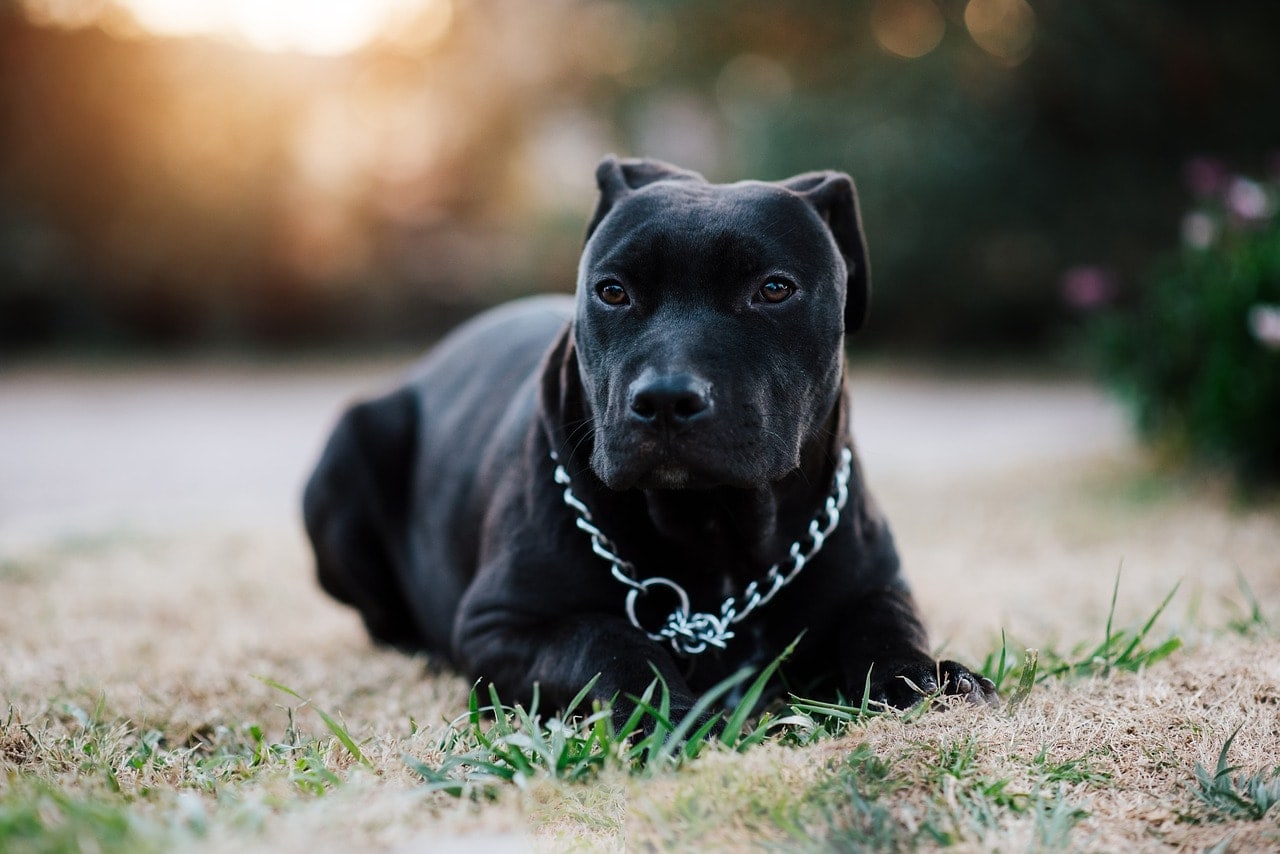
Breeding
Pit Bulls aren’t generally prone to issues with breeding and pregnancy so long as they are properly performed. Breeders should follow best practices, such as not breeding dogs until they are about 2 years old and not allowing females to get pregnant every heat cycle. Unfortunately, Pit Bulls are often a popular breed for puppy mills or irresponsible breeders who don’t follow these standards.
Suitable For:
Pit Bulls are suitable for experienced dog owners of all ages and living situations. They need active owners who’ll make sure they get daily exercise. Pit Bulls do best when they’re considered part of the family and get to spend as much time as possible with their humans. Busy families or those who don’t spend much time at home should consider whether getting a pet, especially one as dependent on human contact as the Pit Bull, is right for them.
Which Breed Is Right for You?
Rottweilers and Pit Bulls are both best suited for experienced, invested dog owners who have plenty of time to spend with their pets. If you’re looking for a better all-around guard dog or working dog, the Rottweiler is the better choice due to their loyalty, protective nature, and drive to work.
Pit Bulls are generally more easy-going than Rottweilers and more interested in serving as devoted companions than any other job. They are intense in their desire to please and need for constant human attention.
Both breeds require similar amounts of socialization and training from an early age to become their best selves. It’s also worth noting that both breeds are among the most likely to suffer from breed discrimination. Renters who own these breeds often find them banned by landlords, and some cities have passed laws banning entire “dangerous” breeds, usually Pit Bulls.
Whichever breed you choose, make sure you’re prepared to spend the time and effort to ensure that they grow up well-mannered, calm adult dogs. Unfair breed discrimination happens because people make bad choices, but the dogs wind up paying the price. Rottweilers and Pit Bulls may not deserve bad reputations, but they do deserve loving, supportive homes.
See Also:
- Bull Terrier vs Pitbull: Main Differences (With Pictures)
- Doberman vs Rottweiler: The Key Differences
Featured Image Credit: (Rottweiler) Dolores Preciado, Shutterstock (Pitbull) SerinaAnnPhotography, Shutterstock

